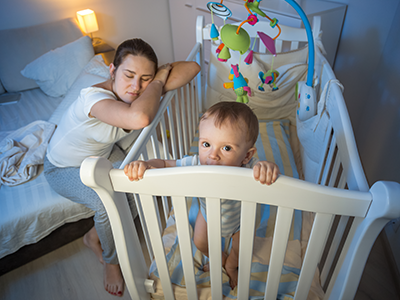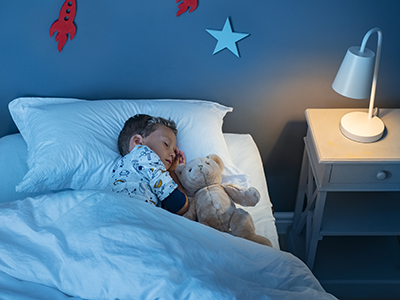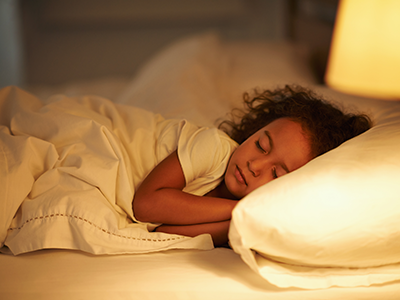Are children naughtier because of irregular bedtimes? A 2013 study suggests they are. Published in an American Academy of Pediatrics’ (AAP) journal, the study of more than 10,000 children in the United Kingdom found that children with non-regular bedtimes had more behavioral difficulties.
Irregular bedtimes can disrupt a child’s circadian rhythms, the internal biological clocks that help determine sleep patterns. Sleep deprivation can harm a child’s developing brain, and drowsiness can affect a child’s school performance.
A key to getting a good night’s sleep is preparation. A routine helps children – and frankly anyone – fall asleep and stay asleep.
Infants, up to 3 months old, spend equal hours of wake and sleep; around 6 months old, babies sleep through the night with two to three daytime naps. Toddlers need about 11-12 hours of sleep; school-age children need about 10-11 hours; and teens need between nine -10 hours.
Setting a bedtime routine
Maintaining a sleep routine is important for all age groups, even as children grow up and control their pre-bedtime routine.
A nighttime ritual signals to your child that it’s time to wind down. Setting manageable routines isn’t difficult, but it does help to start early – hours ahead of bedtime, and as young as possible.
At least an hour or two before bedtime, begin to turn off any electronics such as televisions, computers, smart phones, iPads, etc., because light from the devices and stimulation from watching them keep a child’s brain on “active” mode.
The bedroom should be a place that’s quiet and comfortable where there’s not a whole lot that’s over-stimulating. Some people recommend music or white noise, but that depends on a lot of factors.
Overtiredness
Putting young children to bed too late can result in overtiredness, which in that age group, looks more like having difficulty settling down.
Change is a big thing for adolescents. Biologically they tend to go to bed later and get up later, but if you allow them variable schedules, they may end up sleeping on their own schedule and if it conflicts with school schedules, they can become sluggish. They’ll be like someone who is jet lagged.
 https://riseandshine.childrensnational.org/wp-content/uploads/2023/03/teen-sleeping-with-computer-feature.png
300
400
Rise and Shine
https://riseandshine.childrensnational.org/wp-content/uploads/2017/11/childrens_riseandshine_logo.jpg
Rise and Shine2023-03-09 15:18:342023-03-09 15:25:03Help! My teen’s sleep schedule is off
https://riseandshine.childrensnational.org/wp-content/uploads/2023/03/teen-sleeping-with-computer-feature.png
300
400
Rise and Shine
https://riseandshine.childrensnational.org/wp-content/uploads/2017/11/childrens_riseandshine_logo.jpg
Rise and Shine2023-03-09 15:18:342023-03-09 15:25:03Help! My teen’s sleep schedule is off


 Daniel S. Lewin, PhD, DABSM is a pediatric psychologist, sleep specialist and licensed clinical psychologist. He is Board Certified in Sleep Medicine and Behavioral Sleep Medicine.
Daniel S. Lewin, PhD, DABSM is a pediatric psychologist, sleep specialist and licensed clinical psychologist. He is Board Certified in Sleep Medicine and Behavioral Sleep Medicine.


















Leave a Comment
Want to join the discussion?Feel free to contribute!